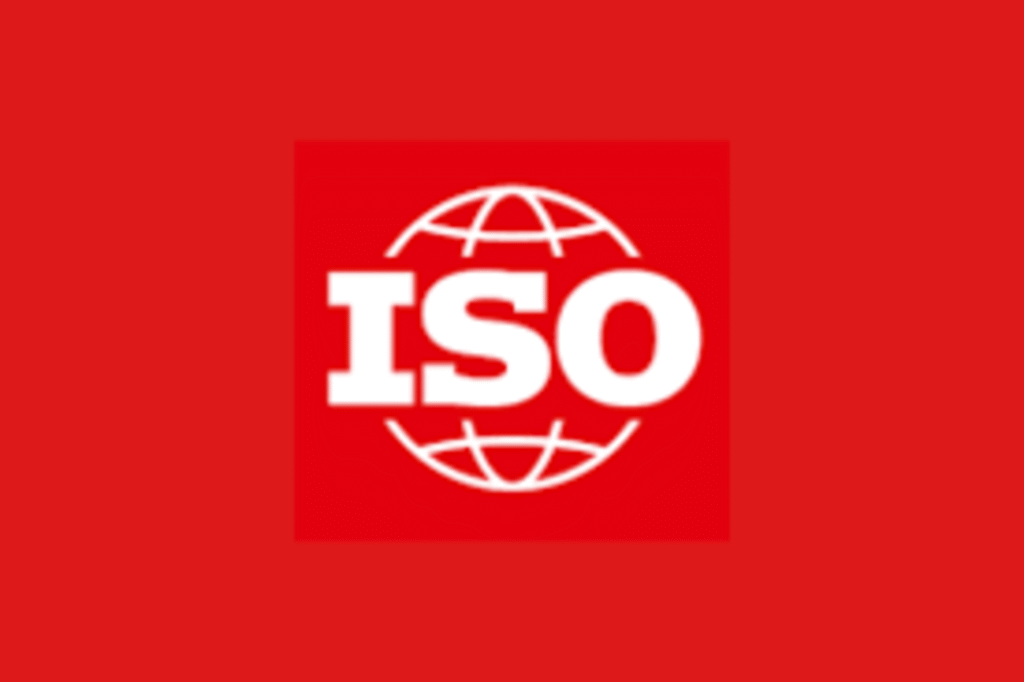So, What’s ISO 27001 All About?
ISO 27001 is the gold standard for information security management systems (ISMS). Think of it as a blueprint for safeguarding sensitive data—everything from customer billing info to network configurations. It’s a set of rules and processes that ensures your telecom business doesn’t leak data like a sieve. Whether you’re a small regional provider or a global giant, ISO 27001 certification shows you take security seriously. Ever wonder why customers stick with brands they trust? It’s because they know their data’s safe.
This standard isn’t just for tech nerds in server rooms. If you’re a telecom provider handling call records, customer databases, or even IoT device data, ISO 27001 applies to you. It’s about building a system that protects data at every turn, from the moment a customer dials a number to when their payment clears. Sounds intense, right? But it’s really about creating a safety net that lets you focus on growing your business.
Why Should Telecoms Care?
Let’s cut to the chase: data breaches are a nightmare. One slip, and you’re on the news, explaining why millions of call logs ended up on the dark web. ISO 27001 certification helps you dodge that bullet. It’s not just about avoiding disaster; it’s about building a reputation as a telecom provider that customers and partners can rely on. Here’s why it’s worth your attention:
- Customer Confidence: People want to know their texts and calls are private. ISO 27001 certification is like a neon sign that says, “Your data’s safe with us.”
- Regulatory Compliance: Governments are cracking down on data protection—think GDPR or CCPA. ISO 27001 keeps you ahead of the curve, no matter where you operate.
- Fewer Crises: A solid ISMS catches risks before they become headlines. Less time firefighting means more time innovating.
- Competitive Edge: Big clients—like enterprises or government agencies—often demand ISO 27001 certification. It’s your key to landing those lucrative contracts.
You know what’s wild? A single data breach can cost millions—$4.45 million on average, according to IBM’s 2023 report. Compare that to the cost of getting certified, and it’s clear which one’s the smarter bet.
The Guts of ISO 27001: How It Works
So, what’s inside this standard? ISO 27001 is like a Swiss Army knife for security—it’s got tools for every risk. You start by identifying what could go wrong, like a phishing attack on your customer service team or a misconfigured network switch. Then, you build controls to stop those risks in their tracks. It’s not about locking everything down like Fort Knox; it’s about smart, practical steps that keep your data secure.
Here’s the core of it:
- Risk Assessment: Spot the weak links in your chain—maybe it’s outdated software or lax password policies.
- Controls: Set up barriers, like encryption for data in transit or access controls for your CRM system.
- Monitoring: Keep an eye on things with regular checks—think intrusion detection systems or audit logs.
- Incident Response: If a breach happens, you’ve got a plan to contain it fast, like isolating a compromised server.
- Continuous Improvement: Keep tweaking your system to stay ahead of new threats, like zero-day exploits.
It’s like maintaining a car—you don’t just fix it when it breaks; you check the oil, rotate the tires, and keep it running smoothly. ISO 27001 helps you do that for your data security.
The Emotional Win: Sleeping Soundly
Picture this: it’s 3 a.m., and your phone’s buzzing with alerts about a potential hack. Your heart races as you imagine the fallout—angry customers, regulators knocking, and your stock price tanking. ISO 27001 certification eases that dread. It’s not just about processes; it’s about knowing you’ve got a system that catches threats before they spiral. That peace of mind? It’s priceless.
Your team feels it too. Clear security protocols mean your IT crew isn’t scrambling to guess what’s safe or not—they’ve got a playbook. In a high-stakes industry like telecom, where downtime or breaches can cripple operations, that clarity is a game-changer.
The Road to Certification: What’s the Deal?
Getting ISO 27001 certification isn’t a quick jaunt, but it’s not rocket science either. It takes effort, a bit of budget, and a commitment to doing things right. Here’s how it typically unfolds:
- Gap Analysis: Check how your current security measures stack up against ISO 27001. Maybe your firewalls are top-notch, but your employee training needs a boost.
- Build Your ISMS: Create or refine your security system. This could mean rolling out two-factor authentication or tightening vendor contracts.
- Internal Audit: Test your setup to make sure it’s solid. It’s like a practice run before the real deal.
- Certification Audit: A third-party auditor—like DNV or BSI—reviews your system. They’re not out to get you; they’re there to ensure you’re on track.
- Keep It Up: Certification isn’t a one-time thing. Regular audits and updates keep your ISMS sharp.
Pro tip: don’t try to wing it. Tools like ISMS.online or consultants from firms like Advisera can make the process smoother. Think of them as your co-pilot, guiding you through the fog of compliance.
The Cost Conundrum: Worth the Price?
You’re probably wondering, “How much is this going to cost me?” It depends on your company’s size and complexity. A small telecom provider might spend $10,000 to $20,000 on audits, training, and consulting. Larger players with sprawling networks could be looking at $50,000 or more. But let’s put that in perspective: a data breach could cost you millions, not to mention the PR disaster. ISO 27001 certification is like buying a top-tier security system for your house—expensive upfront, but worth every penny when trouble comes knocking.
Plus, it opens doors. Ever tried pitching to a corporate client without a security certification? It’s like showing up to a black-tie event in sweatpants. ISO 27001 gets you in the room.
A Quick Sidestep: The Evolving Telecom Landscape
Let’s take a moment to zoom out. The telecom world is changing fast—5G, IoT, and edge computing are rewriting the rules. With more devices connected than ever (think smart fridges phoning home), the risks are skyrocketing. A single weak link—like an unsecured IoT gateway—can bring down your network. ISO 27001 certification keeps you ready for these challenges, ensuring your security evolves with the tech. It’s not just about today’s threats; it’s about staying one step ahead of tomorrow’s.
Avoiding the Pitfalls: Don’t Trip Up
Here’s the deal: some telecoms treat ISO 27001 like a checkbox exercise, throwing together a system just to pass the audit. Big mistake. Auditors can spot a flimsy setup faster than you can say “data leak.” Others get overwhelmed by the standard’s scope and give up. Don’t let that be you.
Here’s how to stay on course:
- Start Simple: Tackle one area, like network security or employee access, and build from there.
- Train Your People: Your staff are your first line of defense. Make sure they know how to spot a phishing email or secure a router.
- Document Everything: ISO loves records. Tools like OneTrust can keep your logs organized and audit-ready.
- Stay Committed: Security isn’t a one-and-done deal. It’s a mindset that keeps your business resilient.
The Bigger Picture: Why It Feels Right
There’s something powerful about knowing you’re protecting your customers’ data. ISO 27001 certification isn’t just about avoiding fines or breaches; it’s about building a business you’re proud of. Imagine a customer trusting you with their private calls, knowing their info is locked down tight. Or a big enterprise choosing your network because they know you’ve got security nailed. That’s the kind of impact that goes beyond the balance sheet.
And in telecom, where competition is fierce—think Verizon duking it out with AT&T—ISO 27001 gives you an edge. It’s like having a black belt in data security; people notice, and they respect it.
Ready to Make It Happen?
If you’re still on the fence about ISO 27001 certification, ask yourself: can you afford to skip it? Data security isn’t just a nice-to-have—it’s the foundation of trust in telecom. Whether you’re a scrappy regional provider or a global powerhouse, this standard equips you to thrive in a world where data is king. It’s not about being perfect; it’s about being prepared. So, what’s stopping you?
Check out resources like the International Organization for Standardization’s website or connect with a security consultant like CyberGuard360. You’ve got the tools—now go build that fortress.
- ISO 27001 certification
- If you’re still on the fence about ISO 27001 certification, ask yourself: can you afford to skip it? Data security isn’t just a nice-to-have—it’s the foundation of trust in telecom. Whether you’re a scrappy regional provider or a global powerhouse, this standard equips you to thrive in a world where data is king. It’s not about being perfect; it’s about being prepared. So, what’s stopping you?
- ISO 27001 certification
Related posts:
 Discover the Best Fence Installation Services in Omaha with Huskins Services LLC
Discover the Best Fence Installation Services in Omaha with Huskins Services LLC
 Summer Solstice Party Ideas & Activities for a Magical Celebration | BizzCrave
Summer Solstice Party Ideas & Activities for a Magical Celebration | BizzCrave
 At the Time of Booking: What to Keep in Mind During a Medical Emergency
At the Time of Booking: What to Keep in Mind During a Medical Emergency
 Make Waves on Your Birthday with SunFunFTL’s Luxury Boat Rentals in Fort Lauderdale
Make Waves on Your Birthday with SunFunFTL’s Luxury Boat Rentals in Fort Lauderdale
 Biodegradable Packaging Trends Across Asia-Pacific & Global Markets
Biodegradable Packaging Trends Across Asia-Pacific & Global Markets
 How to Use Magazine WordPress Themes to Create a Unique News Experience
How to Use Magazine WordPress Themes to Create a Unique News Experience
 What Should You Know Before Choosing a Book Printing Company?
What Should You Know Before Choosing a Book Printing Company?
 Discovering the Right Office Furniture for Comfort and Productivity
Discovering the Right Office Furniture for Comfort and Productivity







